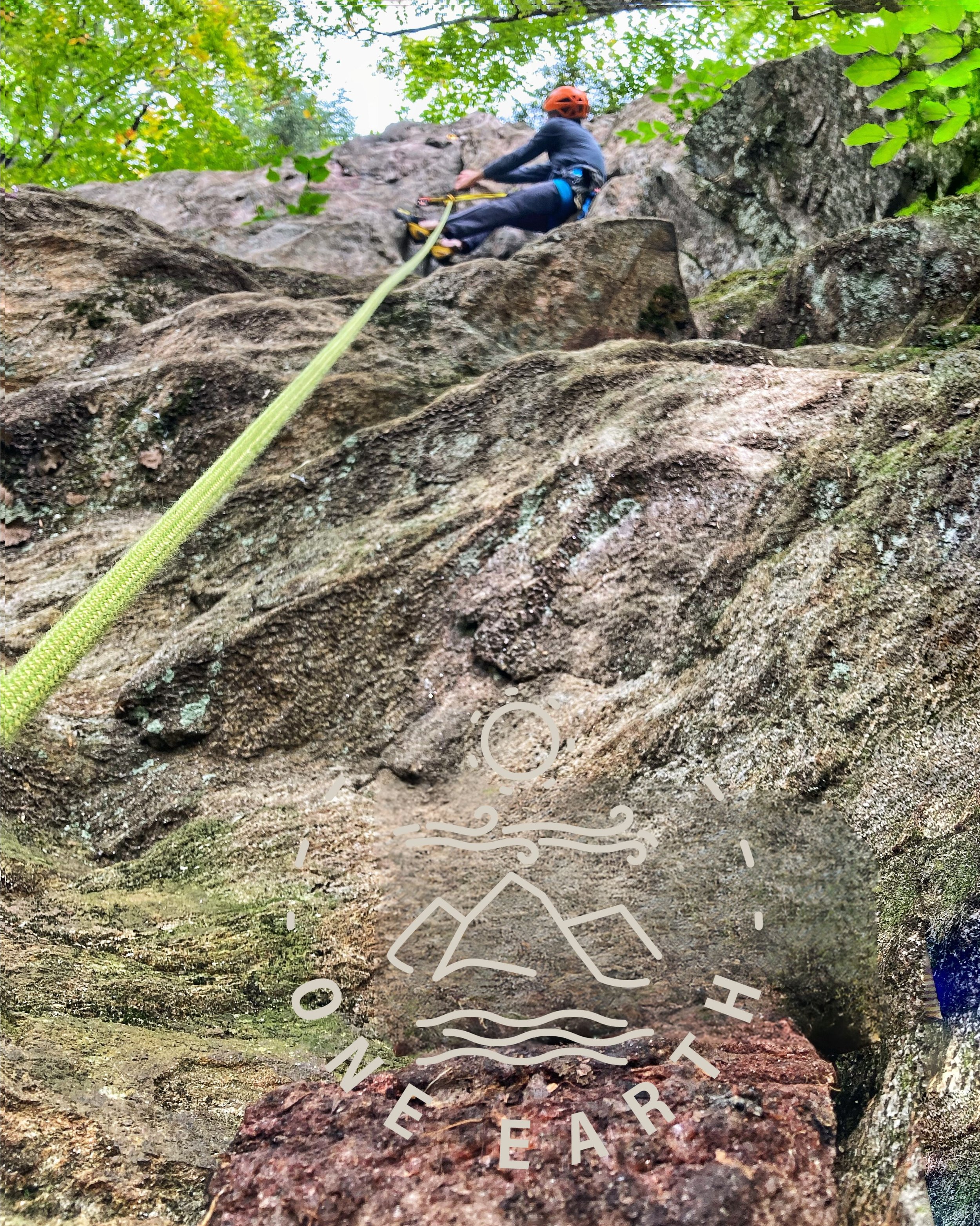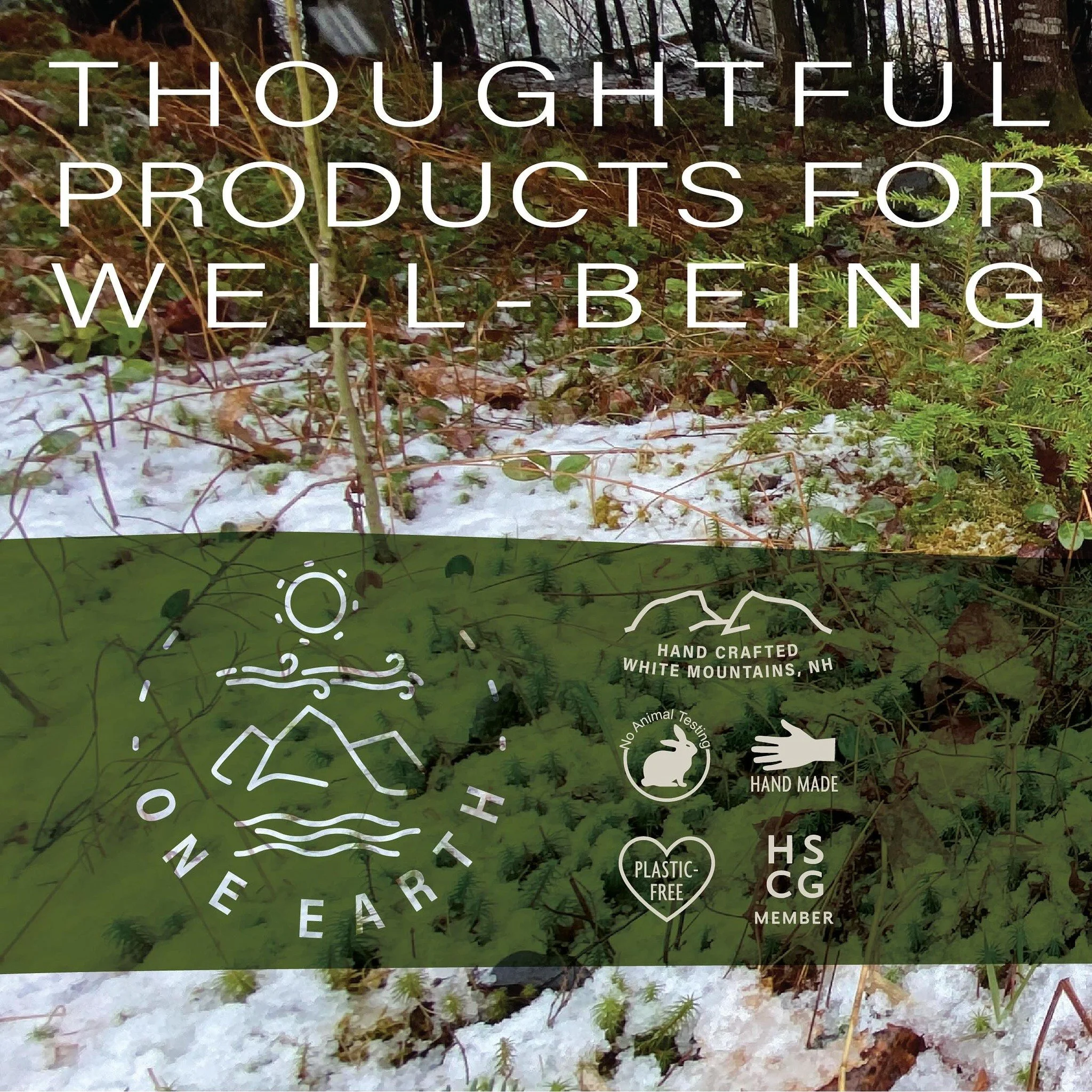
One Earth: A Holistic Approach to Personal Body Care
The next time you’re preparing to lather up and reach for the shampoo, consider this: a typical liquid bottle contains about 80 percent water. And then note that the other 20 percent or so could be derived from harsh chemicals that could negatively affect your body and the environment.
Plymouth-based One Earth was established in 2017 to address issues like these, all the while offering safe, effective, and appealing body care products. In fact, the company’s website proclaims that its mission “is to provide fabulous body care products made with respect for the Earth, and to reduce plastic and other toxins in everyday life.”
As I chat with One Earth co-founders Anne Altor and Ed LaPlante it quickly becomes clear that they have a strong passion for sustainability, with a particular interest in natural health, land conservation, and social justice. Add to that Anne’s background in environmental science and ecology and Ed’s business acumen, and it’s not a surprise that the partners are enjoying increased sales and market presence throughout New England.
The company’s first product was a skin balm that was a hit with climbers in the region. Altor notes that the goal was to slowly expand their product offerings, while always concentrating on the integrity and quality of ingredients.
“We want our products to be good for people and good for the planet. And that means how they are made, what they are made of, and what they are packaged in,” says Altor.
To that end, the company avoids so-called conflict ingredients, which, as the name suggests, are problematic from environmental or social perspectives. For example, One Earth does not use palm oil because of its direct link to deforestation.
This can be a significant challenge, particularly for outfits like One Earth because they cannot order on a scale like Dr. Bronner’s or other larger companies that are competing for a limited supply of responsible feedstocks. With a product line that includes shampoo bars, deodorants, balms, insect repellant, and pet items, Altor admits that sourcing can be complicated.
I’m not going to say we’re perfect at sourcing because supply chains can change. But we’re always trying to learn and improve,” she says.
The company has transitioned to packaging that is almost exclusively compostable or recyclable. It is also committed to transparency and goes so far as to list on its website the chemical composition of the ingredients to its body care products.
On a different front, One Earth is very active in supporting like-minded organizations, such as Health in Harmony, a non-profit that invests in solutions to rainforest deforestation, and Soul Fire Farm, which is “committed to uprooting racism and seeding sovereignty in the food system.” Altor says she and LaPlante strongly believe in giving back to the larger community and that it’s important to them to support organizations that provide opportunities for less-privileged people.
As we wrap up our discussion, LaPlante posits a simple, but important question: why are shampoo bars better than liquid shampoo bottles?
“A two-ounce One Earth shampoo bar is equivalent to a 24-ounce bottle of shampoo. Taking the water out and having a concentrated bar has huge ramifications beyond just saving two, three, or four plastic bottles,” he says. Indeed, the amount of water, transportation, and energy required for traditional shampoo is highly inefficient.
So, as society transitions to a more sustainable ethos, mundane acts like bathing can provide consumers with opportunities to find ways to reduce their impacts, while also supporting local businesses like One Earth.
GO Sustainable Tip of the Month
When touting the sustainable attributes of a product, it’s critical to be truthful and transparent. “Greenwashing”, in which a company overstates or lies about a product’s environmental or social profile, is not only poor form, but can violate federal and international laws. Moreover, reputational risks associated with greenwashing can be extensive to a brand. Counterintuitively, “greenhushing” has become a phenomenon in recent years. This is when a company decides to not broadcast its sustainability commitments because of a fear of backlash from a vocal minority of consumers or politicians. In sum, companies are well-served to communicate honestly about the inputs and impacts of their products or services.
Andrew Schuyler splits his time between Conway, NH and Melrose, MA. He serves on the board of the White Mountains Interpretive Association and has a background in journalism, clean tech, and government affairs. He enjoys hiking and skiing (sometimes together), and has come to terms with losing regularly to his kids in backgammon and Quiddler. If your organization would like to be considered for a future GO: Sustainable report, please contact Andrew at andrewschuyler@hotmail.com or 413-441-9352.



